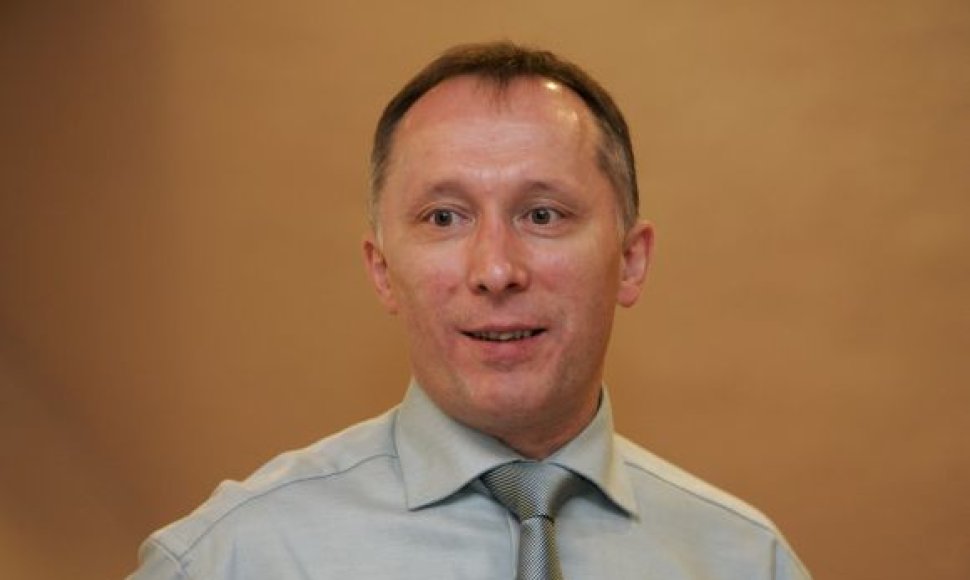Experts pay attention to the fact that the existing ruling coalition may lose majority in the parliament following elections in October, and the opposition social democrats did not endorse the laws.
"Since the majority in the Seimas is really unconvincing, and the incumbent ruling parties cannot hope for many seats in a new parliament or a parliamentary majority, so there's a chance the discussion on the Visaginas nuclear power plant project might be resumed in the fall or early next year, and a new Seimas may revise the adopted decisions," political scientist Algis Krupavičius told BNS on Thursday.
In his words, there already is a precedent for such a scenario, as energy company Leo LT, established under the social democrats, was split after the conservatives came into power.
Krupavičius believes President Dalia Grybauskaitė's positions on the issue will be important. "The president is not dead sure," he said.
 |
| Irmanto Gelūno/15min.lt nuotr./Tomas Janeliūnas |
Tomas Janeliūnas of the Institute of International Relations and Political Science at Vilnius University said the political process around the nuclear facility project would not prevent the revision of adopted laws after the elections.
"The fact that the social democrats walked out and did not take part in the vote shows that they are trying to distance themselves from the existing situation as much as possible, and it seems that if they have opportunities to amend the laws after next autumn, they will definitely do that," he said.
According to Janeliūnas, the Thursday vote crowned the incumbent government's efforts and work done for the Visaginas nuclear power plant project. The expert also acknowledged that Grybauskaitė's position would be important but not decisive.
"I think the president will be in favor of consistency, and will expect it from the future ruling parties. I imagine that the President's Office will definitely put some kind of pressure. That would be one of the important factors in ensuring the project's continuity. But it won’t be enough. No matter what the president's position will be, no matter what pressure will be, she and her team alone will definitely not be able to guarantee that this project is implemented," Janeliūnas said.
Alvidas Lukošaitis, vice-president of the Association of Lithuanian Political Scientists, told BNS the strategic side of the N-plant project does not deny the "disputability" of this issue.
"We clearly see that votes of the political powers, parliamentary parties were different. Despite the seriousness of the adopted decision, it's hard to talk about political consistency. Unfortunately, the strategic importance of this issue does not deny its disputability. This is where the biggest problem lies, and it's not the first time when issues of such importance on our political agenda fail to unite political powers and make them reach agreement," he said.
In his opinion, despite talks that there has been plenty of information about the project, there is still a problem that the public is not informed in the way that would make "people believe in such projects." The head of state will have the decisive role, Lukošaitis believes.
Earlier on Thursday, Lithuania’s parliament gave the go-ahead to build a new nuclear power plant in Visaginas.












